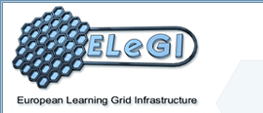

In the world of the Semantic Web assisted learning, Knowledge in a learning community means explicitly expressed domain conceptualisation and resources that are well described using this conceptualization. In this way, they become sharable, reusable and machine process-able within the community. To ensure this, ontology is used to formally model the domain conceptualisation so that learning resources can be annotated to have enriched semantics in a value-added semantic layer. As a result, semantic query can be executed in this layer to identify learning resources based on their semantic annotations. More powerful features such as reasoning and inference, offered by the semantic web technology, are made possible. In our pursue for this, we follow stages in the Semantic Web Based Knowledge Life Cycle, a high level strategy that describes how ontology and semantic web technology can be used to capture, model and discover knowledge in the learning domain.
· Knowledge Acquisition (KA): The first stage is to collect basic elements that forms the domain conceptualisation. often this is done by inspecting the domain, e.g., interviewing domain experts and reading existing domain documents. various tools, such as Protege and PC-PACK, are available to carry out the KA work and deliver the results in form of ontology.
· Knowledge Modelling (KM): the focus of this step is to work out what the knowledge is and in what form? This can be a set of predefined templates to represent questions that can be answered through knowledge reuse. The KM step also informs the refinement of KA's deliverables as the ontology must provides enough conceptualisation to answer the knowledge model.
· Knowledge Population (KP): a typical example of the knowledge population is the semantic annotation, which bind the ontology to raw data and generate triples that represent every annotations. KM results in a knowledge repository in which knowledge can be deduced in the next step.
· Knowledge Discovery (KD): this defines methods and algorithm that can be applied to the knowledge repository to provide answers to the questions defined in the KM.